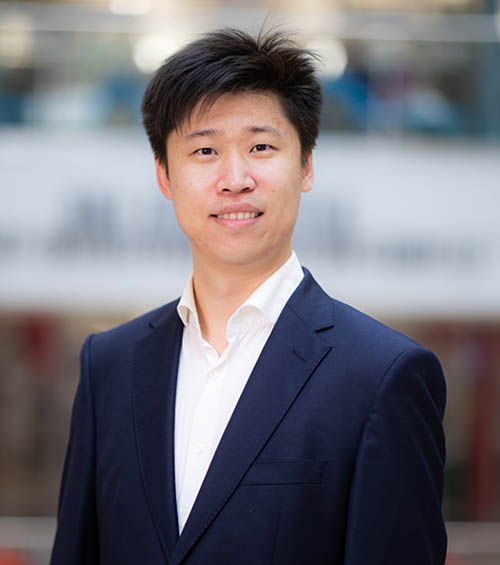
The world has been undergoing a digital transformation over the past few decades as technology has advanced. The rise of digital platforms, such as cloud computing, blockchains and machine-learning services, is leading to numerous new applications and transforming daily life. However, users often don’t know the others they are dealing with, and it is challenging to establish trust on these platforms. Texas A&M University researchers are working to improve this trust.
Dr. Yupeng Zhang, assistant professor in the Department of Computer Science and Engineering, recently received the National Science Foundation’s (NSF) Faculty Early Career Development (CAREER) Award for his research project, “Towards Efficient and Scalable Zero-Knowledge Proofs.” The focus of his research is on developing efficient and scalable zero-knowledge proof schemes, an important cryptographic primitive (well-established, low-level cryptographic algorithms used to build cryptographic protocols) to ensure data privacy and computation integrity simultaneously.
In cryptography, a zero-knowledge proof is a method by which one party (the prover) can prove to another party (the verifier) that a given statement is true while the prover avoids conveying any additional information apart from the fact that the statement is indeed true. The essence of zero-knowledge proof is that it is trivial to prove that one possesses knowledge of certain information by simply revealing it; the challenge is to prove such possession without revealing the information itself or any additional information.
“My research is to enhance the security, privacy and integrity of data and computations in the digital world through schemes in the area of cryptography,” he said. “In this award, ‘zero-knowledge proof’ is a powerful tool to establish trust between people without knowing each other ahead of time. It allows one to convince others that their secret data has some properties, without revealing the secret data itself. Because of this powerful functionality, zero-knowledge proofs have found great applications in cutting-edge technologies to provide privacy, scalability and integrity.”

Zhang’s project advances three aspects of the zero-knowledge proof schemes: theory, application and systems. On the theory side, new practical schemes with linear running time in the size of the computation are constructed based on error-correcting codes and expander graphs. On the application side, the project investigates machine-learning algorithms and graph algorithms and develops efficient zero-knowledge proofs tailored for these applications. On the system side, the project initiates the study of memory-efficient and distributed algorithms for zero-knowledge proofs.
Zhang will bring the efficiency and scalability of zero-knowledge proofs to the next level. His results will enable new applications of privacy-preserving and verifiable data mining on digital platforms to protect users’ data privacy. He will also develop new course materials for undergraduate and graduate cybersecurity education and for broadening the participation in computing of underrepresented groups and K-12 students.
“There are many such powerful schemes in the literature of cryptography, but they were usually first proposed for theoretical interests,” Zhang said. “My research is trying to bring them to practice by developing new schemes with good efficiency and scalability. This usually involves new ideas from all aspects of theory, algorithms, applications and systems. The research will make the schemes applicable for real-world products and accessible to developers and engineers in the industry to protect the security and privacy of data and computations.”
Zhang said there is a rising awareness of the importance of data security and privacy now, and governments and companies are developing new regulations to protect user data. Under these new regulations, companies have become open to using a new generation of cryptographic schemes in real-world products, beyond the traditional encryption and digital signature scheme, all without compromising the privacy and integrity of the data and computations.
“In the long-term, my research will make these new, powerful schemes ready for wide deployment in practices,” he said.
Overseen by the Faculty Early Career Development Program, CAREER awards are one of the NSF’s most prestigious form of recognition and support for up-and-coming researchers who “exemplify the role of teachers/scholars through outstanding research, excellent education and the integration of education and research within the context of the mission of their organizations.” Zhang was pleased to receive the prestigious award to help with his research.
“The award is a great honor and a recognition for my research,” he said. “It is exciting to see that the research area is important and the new ideas are appealing to people in the community. The award provides great support for me to advance the research in these directions. I have also learned a lot from the mentors, collaborators and reviewers during the process of the CAREER award, which improved my understanding of the challenges and the ways to move forward in several research topics.”